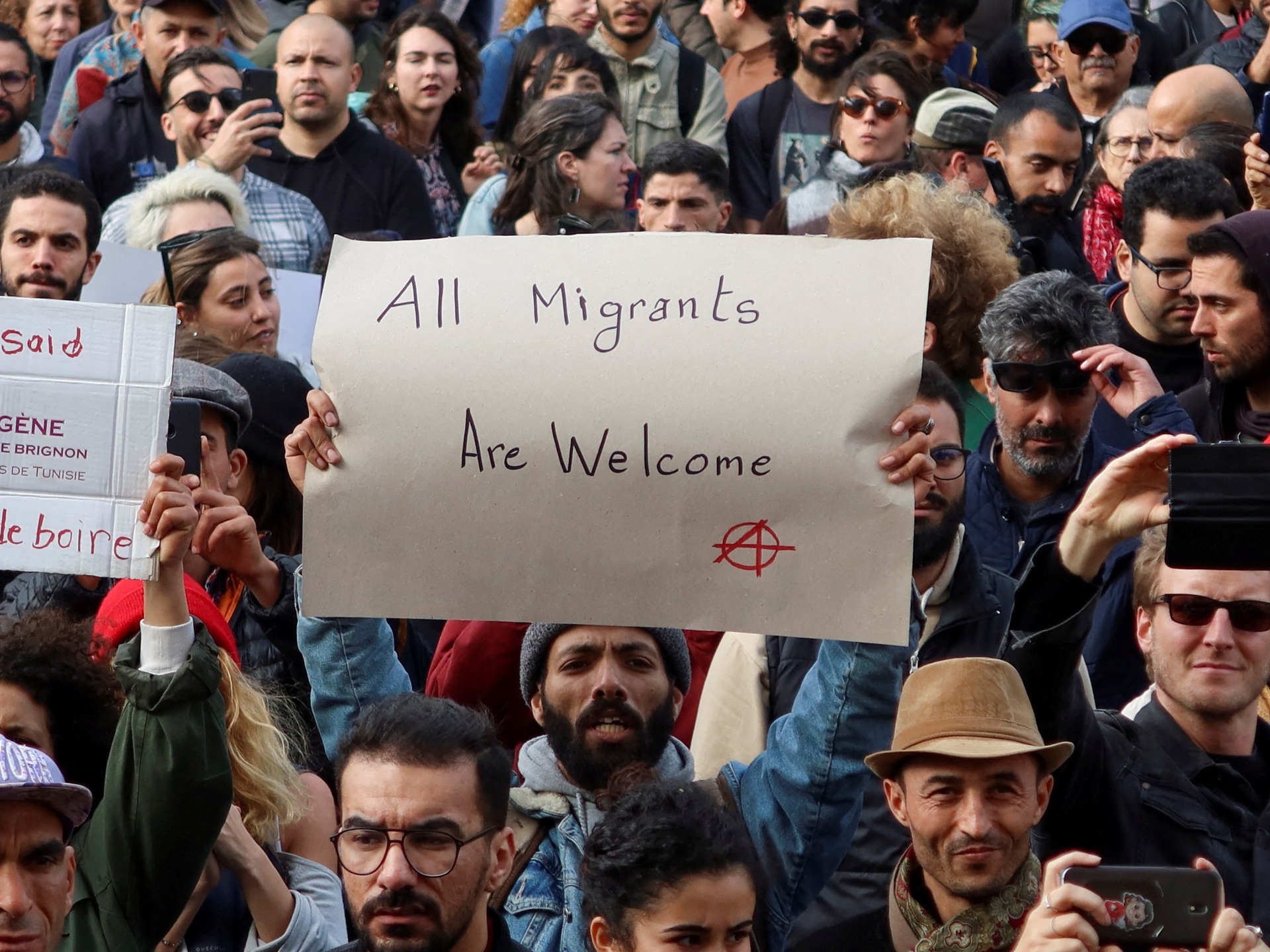In open letter, Congress members say ‘autocratic consolidation’ and the treatment of migrants threaten US-Tunisia relations.
United States legislators have warned of a “stark acceleration in Tunisia’s autocratic consolidation” under President Kais Saied, while decrying the Tunisian leader’s “repugnant, racist and xenophobic remarks about migrants”.
In a letter to US Secretary of State Antony Blinken this week, members of the US House of Representatives urged President Joe Biden’s administration to “ensure that any US foreign assistance to Tunisia supports the restoration of inclusive, democratic governance and rule of law”.
Washington also should ensure any aid “directly supports Tunisians in dire economic need, and does not strengthen the hand of those, including the internal security services, that have exacerbated repression and authoritarianism” under Saied, the US lawmakers said.
Monday’s letter came in the wake of several high-profile arrests of Tunisian opposition figures, as well as activists, journalists and business figures in Tunisia. Several of the arrestees have been charged with conspiring against state security.
The American legislators said some of those charges were reportedly connected to individuals meeting with US diplomats.
Rights groups have accused Saied of moving to consolidate power beginning in 2021, including by shutting down the elected parliament and moving to rule by decree before rewriting a new constitution that was passed in a poorly attended referendum last year.
Opposition groups have said the moves amount to a coup.
Saied has said his actions were legal and necessary to save Tunisia from chaos. He has called his critics criminals, traitors and “terrorists”, and urged authorities to take action against them.
In their letter, the US legislators wrote that the Biden administration “should make clear that Saied’s crackdown undermines the confidence in the rule of law that is essential for a flourishing US-Tunisia relationship and international monetary support that could benefit the Tunisian people and alleviate economic hardship”.
They also seized on comments Saied made in February, when he alleged that undocumented immigration from sub-Saharan African countries is aimed at changing Tunisia’s demographic composition.
He further claimed that unnamed groups had over the past decade settled African migrants in Tunisia in return for money, and called for a crackdown.
The statements were condemned by the African Union as “racialised hate speech”.
Human Rights Watch also told Al Jazeera that the rights group had recorded “exacerbated peaks of violence against sub-Saharan Africans” in Tunisia following the president’s comments.
In their letter, US legislators said the statements “appeared to be aimed at sowing division and inventing scapegoats for the country’s acute economic crisis at a time of growing popular mobilisation against his policies”.
The legislators noted that the US and Tunisia deepened ties following the 2011 democratic uprising in the country, which forced longtime President Zine El Abidine Ben Ali out of office and kicked off the Arab Spring.
Washington designated Tunis as a “Major non-NATO ally” following the Tunisian revolution, and the US has dramatically increased bilateral aid to the country over the last 12 years.
As of June 2022, the US Department of State says it had provided $1.4bn to support Tunisia’s transition.
In 2019, the US and Tunisia also signed an agreement for the US Agency for International Development to provide $335mn “to support increased private sector employment and democratic consolidation” over five years.
Still, the Biden administration began downsizing some sources of aid to Tunisia in its budgets for 2023 and 2024.
Rights advocates also have called for the US to pause a $1.9bn International Monetary Fund bailout under discussion for Tunisia, pending reforms.
In February, State Department spokesman Ned Price said Washington was “deeply concerned” by reports of politically motivated arrests in Tunisia.
He also said a month later that the department was “alarmed by reports of criminal charges against individuals in Tunisia resulting from meetings or conversations with US embassy staff on the ground”.
“This is part, as I said before, of an escalating pattern of arrests against perceived critics of the government,” Price said.
